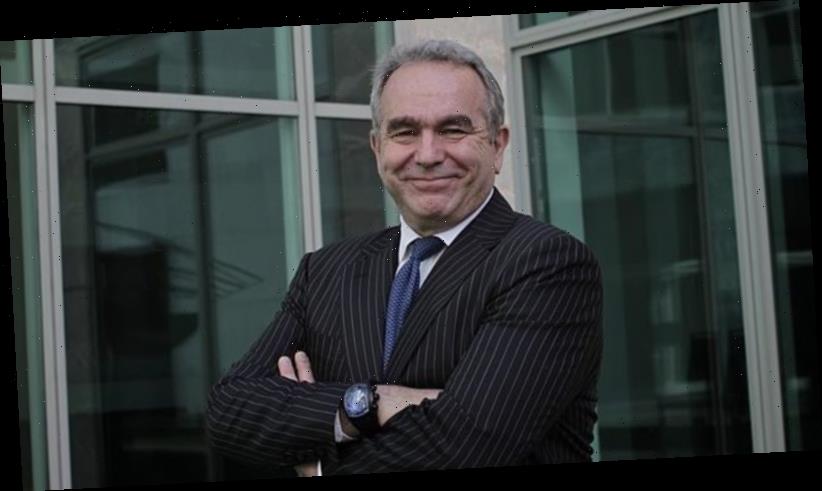The US will not grant China any improvement in relations until Beijing stops its economic coercion of Australia, a senior White House official said.
The administration of President Joe Biden has told the Chinese government that “we are not going to leave Australia alone on the field”, according to the President’s Indo-Pacific co-ordinator, Kurt Campbell.
“We have made clear that the US is not prepared to improve relations in a bilateral and separate context at the same time that a close and dear ally is being subjected to a form of economic coercion,” he told The Sydney Morning Herald and The Age in the first interview a senior Biden official has given to any Australian media.
US President Joe Biden’s Indo-Pacific co-ordinator, Kurt Campbell.Credit:Andrew Meares
Dr Campbell is often described as Mr Biden’s “Asia tsar”. His appointment was hailed as super-charging the US effort to gather allies to confront an increasingly aggressive China. He served as the top Asia official for Hillary Clinton when she was Barack Obama’s secretary of state. He crafted the Obama administration’s pivot to Asia and served in the Pentagon under president Bill Clinton.
He said Mr Biden had given his commitment personally to Australia’s leader, Scott Morrison, during the video-link summit of the Quad countries last Saturday (AEDT).
“President Biden was very direct with Prime Minister Morrison that we stood together on this,” said Dr Campbell, the architect of the summit, who was in the room with Mr Biden during the meeting.
“So we’ve indicated both to Australia and China at the highest levels that we are fully aware of what’s going on and we are not prepared to take substantial steps to improve relations until those policies are addressed and a more normal interplay between Canberra and Beijing is established.”
It is the first known intervention of any nation to take substantive steps in support of Australia in its confrontation with Beijing.
The regime of President Xi Jinping has applied trade bans and tariffs on at least $20 billion worth of Australian exports to China.
As recently as last week, China’s embassy in Canberra threatened that “China-Australia relations will only sustain further damage” after Australia granted a visa to a Hong Kong pro-democracy politician, Ted Hui Chi-fung.
“It’s almost an obvious statement of the role of allies and the importance of Australia that we are not going to leave Australia alone on the field,” said Dr Campbell.
“It’s just not going to happen. I want to underscore this – that reality should not come as a surprise. This matter has been raised in every meeting [with Chinese officials] and it will be underscored in interactions in Anchorage later this week,” when the US secretaries of state and defence are scheduled to meet their Chinese counterparts in the first major face-to-face contact between the Biden administration and Beijing.
“That, in and of itself, is a substantial step,” Dr Campbell said. He added that US economic officials would be discussing further options with Australian and other counterparts.
“I think there are other steps that economic officials will explore. It’s not simply Australia that has been the target of these undeclared kind of steps – we’ve seen it in the Philippines, Vietnam, Taiwan, Japan and others. This is a shared concern and one that I think is worthy of further dialogue.”
Mr Biden has kept in place all the punitive tariffs and other sanctions that his predecessor Donald Trump applied to China. He said in December that he would consult with US allies in Asia and Europe before making any decision on the China sanctions “so we can develop a coherent strategy”.
The Biden administration’s approach is fundamentally different to the Trump administration’s. The US under Mr Trump did not take account of its allies’ priorities in its trade and other dealings with the Chinese government.
Mr Biden has a “much closer focus on working with allies, not alienating them or threatening them or extorting host nation support [for US troops] or suggesting we’re going to pull forces out of the region, much more seeing allies as force multipliers,” Dr Campbell said.
The executive director of the Lowy Institute, Michael Fullilove, has described Dr Campbell as “Mr Australia” in Washington, noting he had been appointed an Officer of the Order of Australia and was a friend to recent prime ministers, including Kevin Rudd and Malcolm Turnbull. He also described him as Washington DC’s pre-eminent Asian policy specialist.
The inaugural summit of the Quad leaders – Mr Biden, Japanese Prime Minister Yoshihide Suga, Indian Prime Minister Narendra Modi and Mr Morrison – agreed to finance, manufacture and distribute an extra 1 billion doses of COVID-19 vaccine to needy nations of south-east Asia by the end of 2022.
“The grouping is meant to send a signal about our system of government” – all four Quad nations are democracies – “and our ultimate optimism to be able to deal with challenges”, Dr Campbell explained. The leaders also set up working groups on other areas and agreed to meet in person by the end of the year.
What in the World
A note direct from our foreign correspondents about what’s making headlines around the world. Sign up for our weekly newsletter here.
Most Viewed in World
From our partners
Source: Read Full Article

